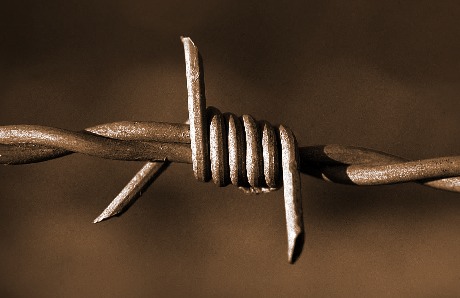People who come up with “Magna Cartas” and “visions” of or for “Internet freedom” miss the whole point. Not only that, they fail to see the irony in what they are advocating. These “visions” and frameworks are supposedly to “uphold” Internet “freedom” and seek to implement guidelines, standards, and/or “covenants” amongst stakeholders (people and parties whose overall well-being depend on access to the Internet in its current form). Presumably, maintaining the status quo (the network’s (1) on-going openness, (2) universal access to it, and (3) its laissez-faire environment) is the overall aim of these groups.
Very noble ideals. But the Internet is the Internet because it owes its nature to no entity or group. It is very likely if not certain that its three “status quo” properties listed above will remain stable over time regardless of any amount of governance people presume to apply to it. Try to control one part of it, and it will grow and/or shape-shift into something that allows its denizens to bypass that control region or domain.

| SUPPORT INDEPENDENT SOCIAL COMMENTARY! Subscribe to our Substack community GRP Insider to receive by email our in-depth free weekly newsletter. Opt into a paid subscription and you'll get premium insider briefs and insights from us. Subscribe to our Substack newsletter, GRP Insider! Learn more |
Look no further than the very system that sustains our lot for now — Mother Nature. Nature will always be Nature whether she is the Nature as we know her today or the Nature as the planet’s next dominants species might know her, say, 500 years into the future. Those of us who see the Internet as necessarily the peachy place for “sharing” lofty ideas and mounting “activist” projects that it ought to be fail to appreciate just how fragile this very narrow notion of what the Net should be really is.
If a bunch of netizens harbour that sort of notion, there will always be a counter-notion that a different group will uphold. Thus we see the on-going clash between advocates of Internet “freedom” and state officials who wish to regulate it. Everyone has an opinion around what the Net ought to be. But the Net as a whole is bigger than that. The Net is shaped not only by the agglomeration of the different ideas that different groups feel it should be but also by the very battles for memetic domination that these different groups wage within it.
The mere existence of digital vigilante group Anonymous, for example, is a testament to how pointless it is to latch on to any paradigm of what the Net ought to be or should be. For every lofty structure in place to regulate from the top, there will always be a grassroots force quietly chiseling away at its foundation from the bottom. And in an ecosystem, it is usually the savviest of the lot who have the least to say and care the least about top-down governance. The truly savvy don’t even care enough to show a face. They just get on with it and thrive in uncertainty, ambiguity, and volatility in the same manner that viruses, Nature’s most deadly predator, goes about its work silently while human beings loudly and pompously pontificate about “saving the planet” yet fail to do just that in actual practice.
The Internet as a technology is unprecedented in the way it provides the infrastructure that enables such a purely Darwinian dynamic in the way information is distributed and accessed to take life over timeframes that are measured by the hour — even with seconds — rather than by generations as was only possible in the past using word of mouth or print. Using old notions of “governance” to presume to harness — or control — this power can only lead to failure.
benign0 is the Webmaster of GetRealPhilippines.com.
The article reads like a filler for a university level pol sci paper to extend the pages for a thesis.
I get what you’re saying, the content is sound but the packaging is lousy.
@benign0
“Using old notions of “governance†to presume to harness — or control — this power can only lead to failure.”
I’m sorry I can’t agree with on this, thinking of North Korea, where only the elite has access to global Internet, while the rest of the citizens are stuck to their national network, which is disconnected from the global network.
For me, we’re always free to say and post what we want.
We are never free from the consequences that ensue from them. So we have to face them.
These views are only written in response to attempts to control the ‘net.
Beware, Benedict! You show your real intelligence!
“the proposed bill is almost perfect compared to RA 10175, and if it becomes law, it will change the entire future not only of the Philippines but its people.”
– http://noldcurammeng.wordpress.com/2013/01/07/sb-3327-magna-carta-for-philippine-internet-freedom/